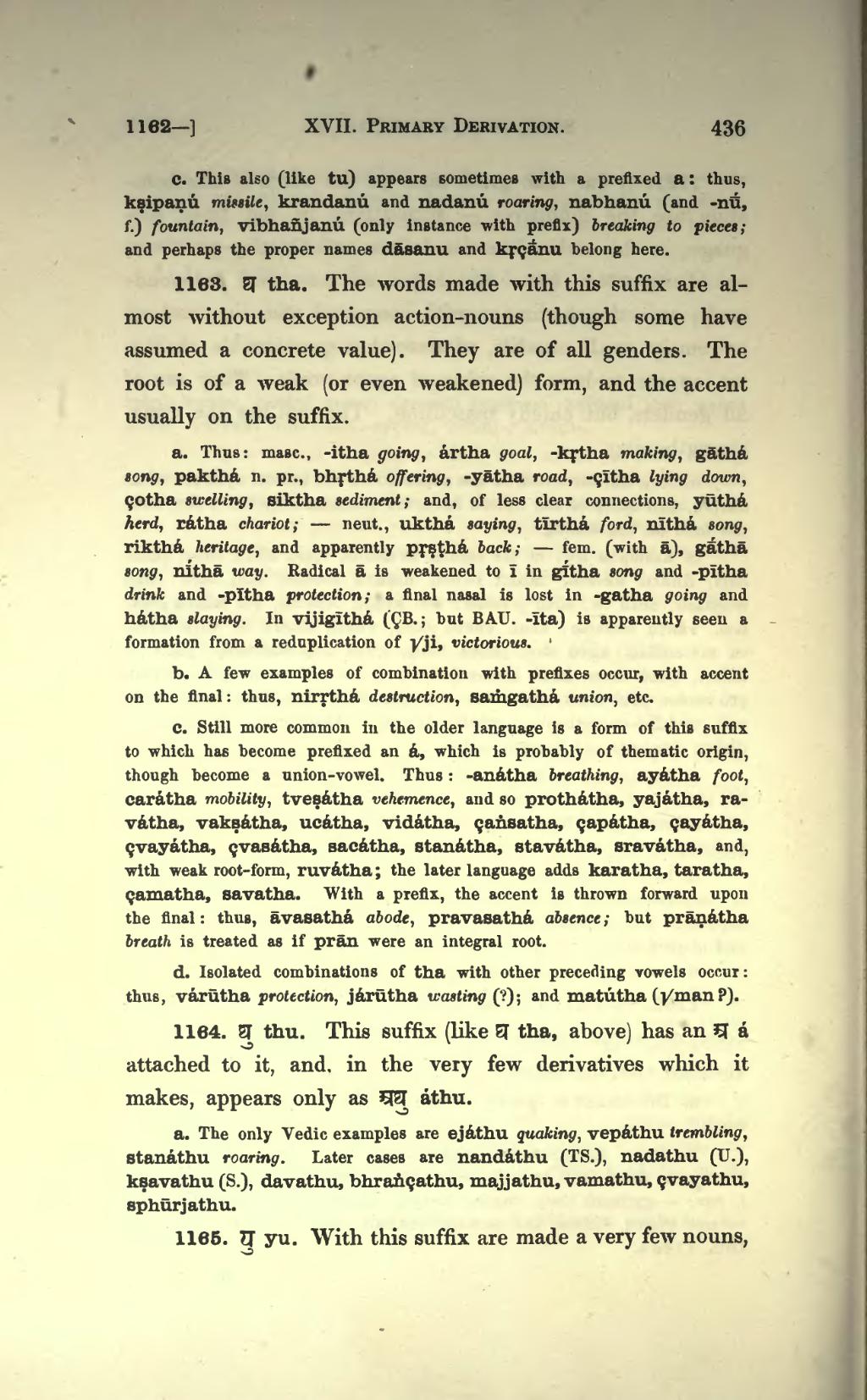c. This also (like tu) appears sometimes with a prefixed a: thus, kṣipaṇú missile, krandanú and nadanú roaring, nabhanú (and -nū́, f.) fountain, vibhañjanú (only instance with prefix) breaking to pieces; and perhaps the proper names dāsanu and kṛçā́nu belong here.
1163. थ tha. The words made with this suffix are almost without exception action-nouns (though some have assumed a concrete value). They are of all genders. The root is of a weak (or even weakened) form, and the accent usually on the suffix.
a. Thus: masc., -itha going, ártha goal, -kṛtha making, gāthá song, pakthá n. pr., bhṛthá offering, -yātha road, -çītha lying down, çotha swelling, sīktha sediment; and, of less clear connections, yūthá herd, rátha chariot; — neut., ukthá saying, tīrthá ford, nīthá song, rikthá heritage, and apparently pṛṣṭhá back; — fem. (with ā), gā́thā song, nī́thā way. Radical ā is weakened to ī in gī́tha song and -pītha drink and -pītha protection; a final nasal is lost in -gatha going and hátha slaying. In vijigīthá (ÇB.; but BAU. -īta) is apparently seen a formation from a reduplication of √ji, victorious.
b. A few examples of combination with prefixes occur, with accent on the final: thus, nirṛthá destruction, saṁgathá union, etc.
c. Still more common in the older language is a form of this suffix to which has become prefixed an á, which is probably of thematic origin, though become a union-vowel. Thus: -anátha breathing, ayátha foot, carátha mobility, tveṣátha vehemence, and so prothátha, yajátha, ravátha, vakṣátha, ucátha, vidátha, çaṅsatha, çapátha, çayátha, çvayátha, çvasátha, sacátha, stanátha, stavátha, sravátha, and, with weak root-form, ruvátha; the later language adds karatha, taratha, çamatha, savatha. With a prefix, the accent is thrown forward upon the final: thus, āvasathá abode, pravasathá absence; but prāṇátha breath is treated as if prān were an integral root.
d. Isolated combinations of tha with other preceding vowels occur: thus, várūtha protection, járūtha wasting (?); and matútha (√man?).
1164. थु thu. This suffix (like थ tha, above) has an अ á attached to it, and, in the very few derivatives which it makes, appears only as अथु áthu.
a. The only Vedic examples are ejáthu quaking, vepáthu trembling, stanáthu roaring. Later cases are nandáthu (TS.), nadathu (U.), kṣavathu (S.), davathu, bhraṅçathu, majjathu, vamathu, çvayathu, sphūrjathu.
1165. यु yu. With this suffix are made a very few nouns,
